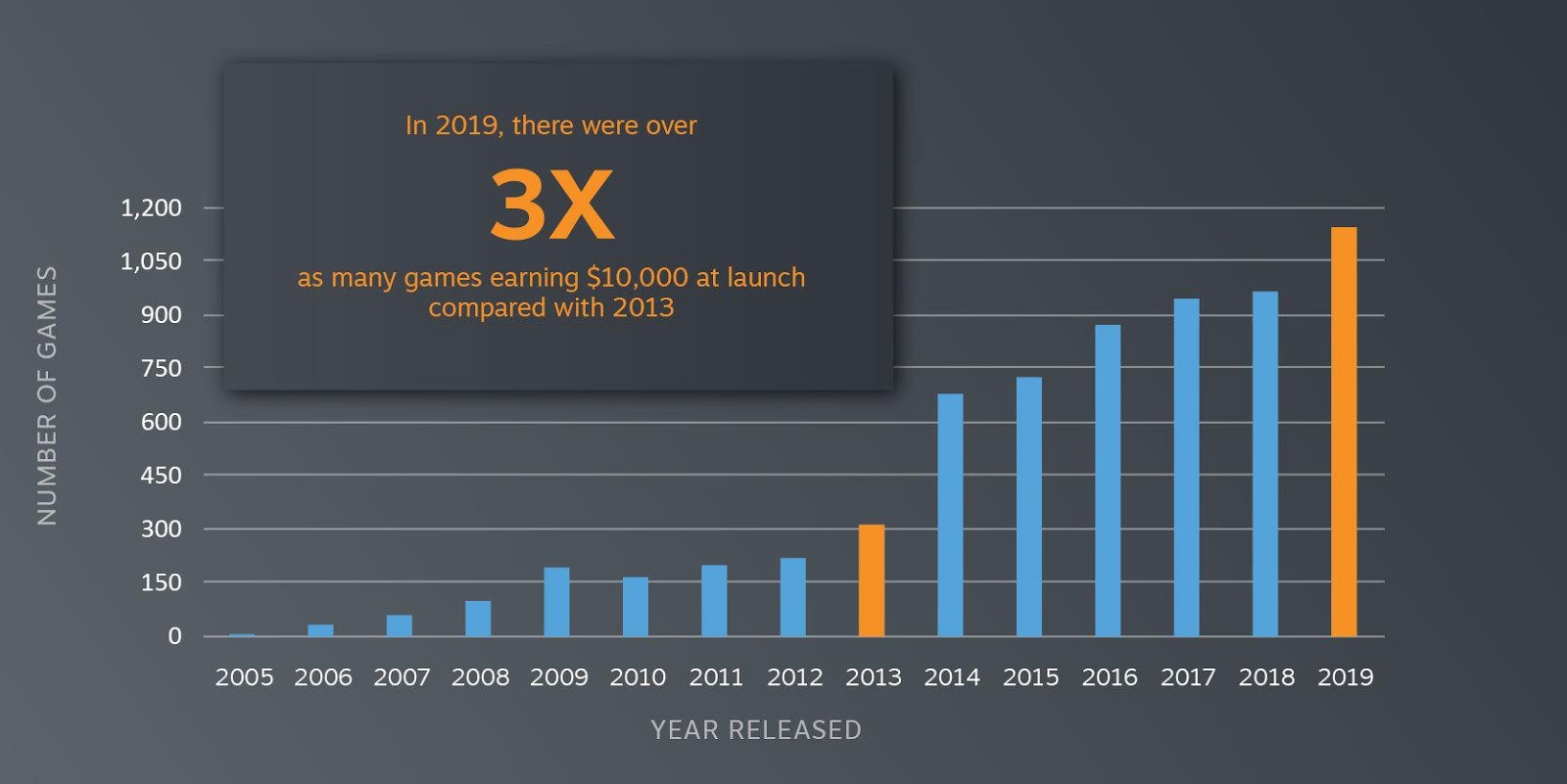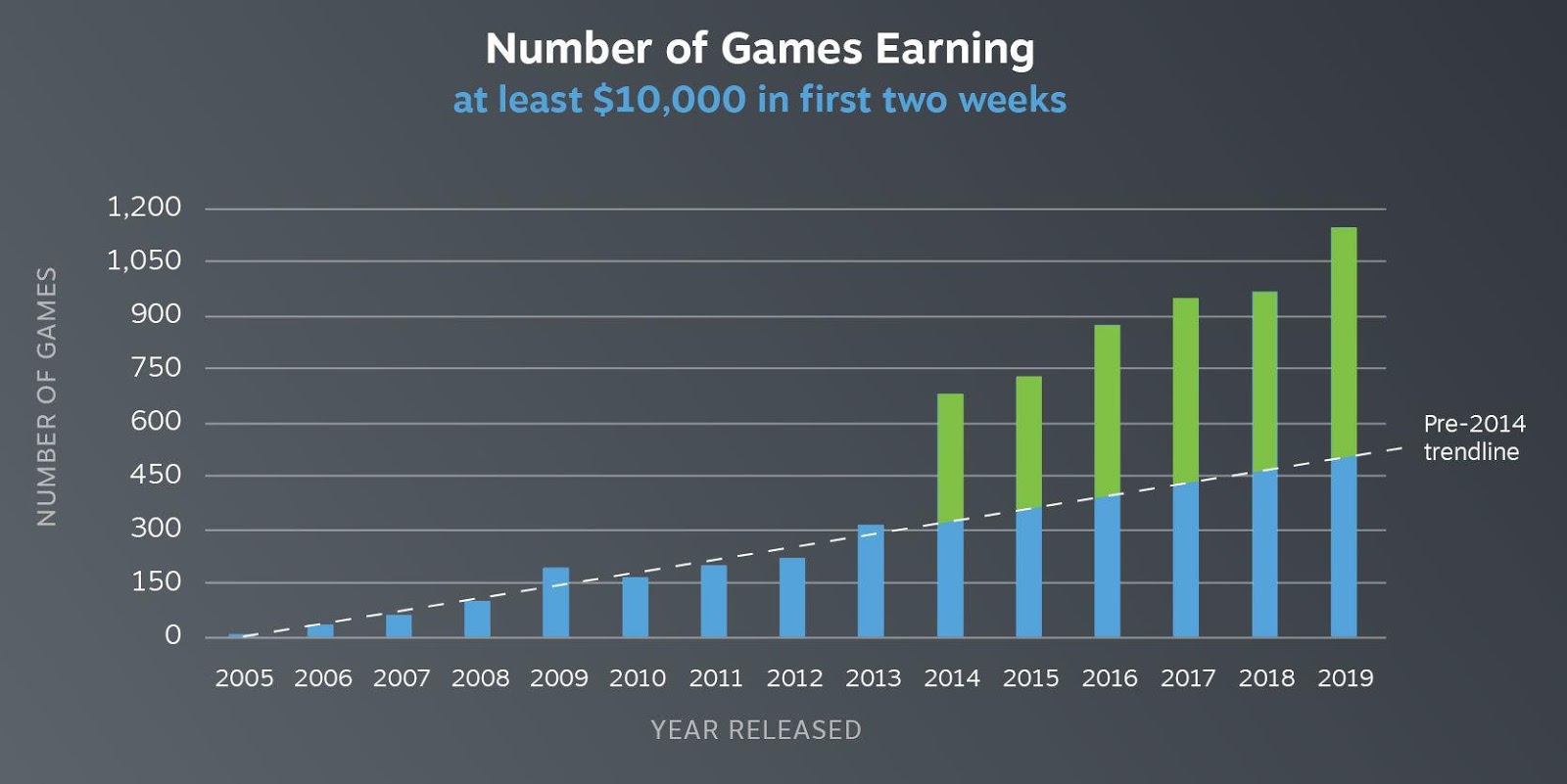
The Steamlords at Valve have rummaged of their reams of information and emerged with a brand new weblog submit speaking about what the expansion of Steam (and the variety of games on Steam) has meant for builders. Coming up with a questionable definition of “success”, they notice that Steam in 2019 noticed thrice as many games incomes $10,000 of their first fortnight in comparison with Steam in 2013. They went on to estimate that if they’d saved Steam’s catalogue curated and tightly managed, an entire lot of games they think about successes wouldn’t have even been launched on Steam. So, that’s good? Also, apparent?
“We are constantly examining how the growth of Steam affects new titles and what it means for developers,” Valve say in the Steamworks blog post geared toward of us promoting games on Steam. “Usually, our own internal questions mirror those of many in the development community.” The unstated implication is that this time they’ve checked out whether or not considerations ober whether or not Steam including increasingly games to its catalogue has scuppered builders’ possibilities of success. Warning: graphs are concerned.
In this datablasting and hypothesis, Valve outline success as “earning over USD$10,000 [about £8k] in the first two weeks after release”. To give an thought of what they means in the long run, they go on to say that “most recent games earning around $10,000 in the first two weeks earned between $20,000 [£16k] and $60,000 [£48k] over the course of 12 months following release.” By this metric, hey look, Steam’s successes have saved on rising as its catalogue has saved increasing.
$10okay within the first fortnight then $60okay within the yr seems like a reasonably grim measure of “success” to me. $60okay just isn’t some huge cash except the dev group is tiny, their dwelling prices are low-cost, the game was fast to make, or they’re supported by different means. That’s why game growth is a part-time pursuit for thus many, I suppose. Maybe this metric is extra “not complete and utter failure” than it’s “success.” Or possibly that’s relative success when everybody has a fair-ish shot.
Valve go on to take a position about what may need occurred if they’d saved Steam tightly curated and solely allowed a trickle of latest releases, moderately than open it slowly with the Steam Greenlight voting course of beginning in 2012, Greenlight accelerating in 2013, then the shop opening right up with Steam Direct.
“The dashed line in the graph below estimates what the trend would have looked like if we hadn’t increased the quantity of games accepted to the platform in mid-2013,” they clarify. “Assuming the trend was stable, it suggests that opening the platform more than doubled the number of releases meeting the $10K benchmark each year. While we can’t say for sure, we think the green portions of the bars above the dashed line are, largely, games that would never have previously found success on Steam… because they never would have been released on the platform at all.”
For a distinct thought of success, Valve do share a research appendix with graphs for games incomes at the very least $5000, $50,000, $100,000, and $250,000 within the first fortnight. The estimates with increased numbers broadly present the same sample that yep, a great deal of successes would additionally not have been on Steam.
So if Valve had continued to run their retailer in a daft method (and it actually was daft), the end result would have been worse. Gotcha.
Do take all Valve’s numberblasting with a pinch of salt as a result of: 1) This is geared toward builders; 2) These are estimates; 3) The estimates are constructed on variables Valve management; 4) Valve have a robust curiosity in making their selections look good – particularly with the Epic Games Store making an enormous promoting level of being curated moderately than open; 5) Graphs are horrible tbh and shouldn’t be inspired.




